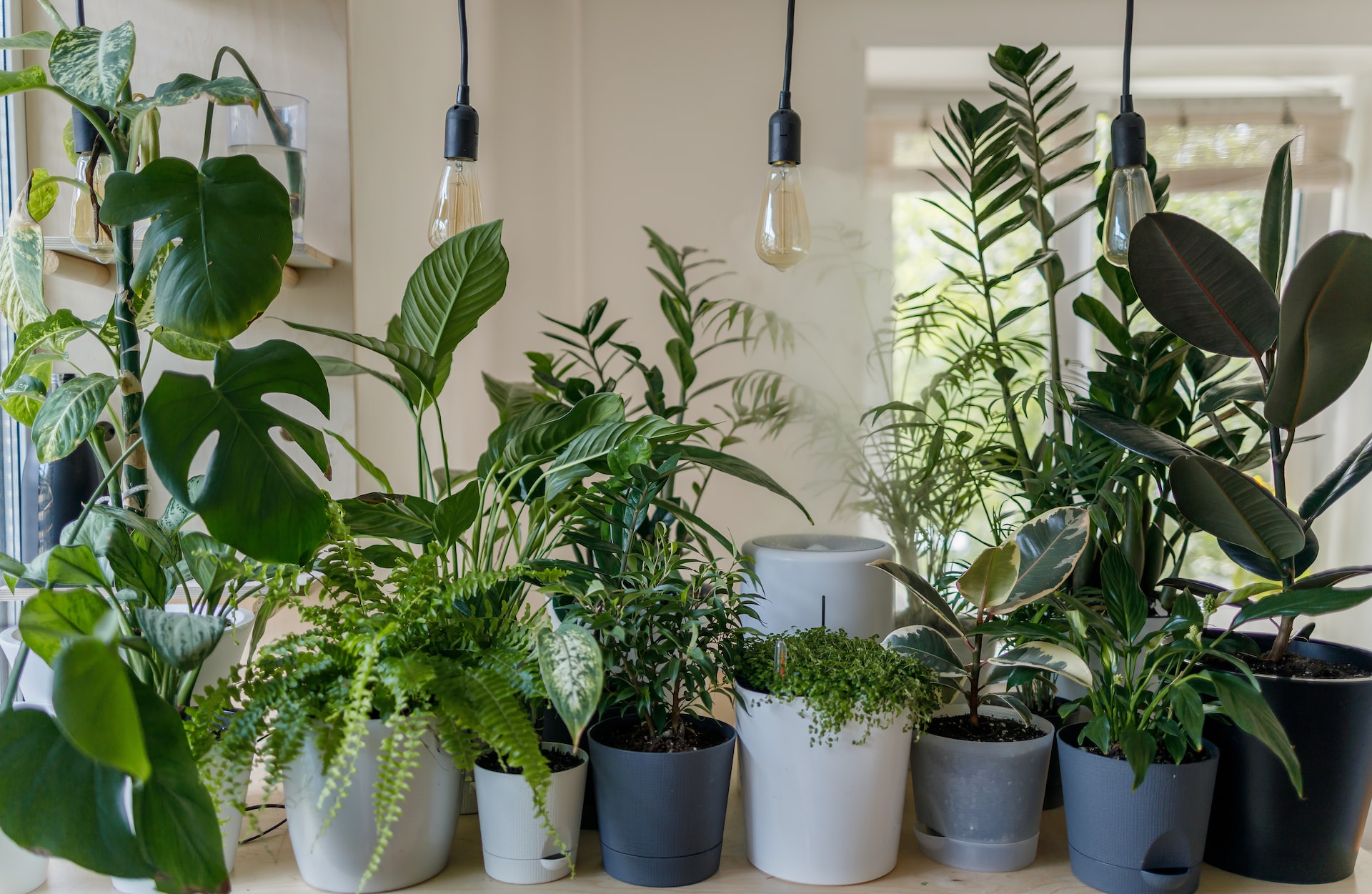Plants are excellent stress relief, and the leafy greenery will brighten anyone’s mood. Winter is a time for staying inside, being cozy and hibernating. Plants also enjoy hibernating and resting in these months. Here are a few tips to take care of house plants over winter to not shock their system.
Cut Back on Watering
Consider watering less frequently depending on your home’s climate and sunlight conditions. However, plants might need the same amount of water if your plants are near heating vents or your home is warmer in winter than summer.
Instead of following a weekly watering schedule, poke the first inch of soil with your finger to check if it is dry or wet, and then proceed with watering. Always plan to under water plants even in winter. You can’t take back water once it is soaked in.
Pay Attention to Sunlight
The seasons change, as does the amount of sunlight plants receive. Think about moving plants to different locations in your home for the best dose of sunlight. If that is impossible, get a grow light from your local garden store! Also, make sure plants on window sills aren’t getting cold drafts. Consider moving them to a different location if they are. To ensure plants grow evenly, quarter-turn them once weekly for a well-balanced plant. I admit I never do that, and my plants are growing lopsided.
Don’t Worry About a Few Dropped Leaves
Winter often brings about cold drafts, and turning the furnace on can change your home’s conditions. Sometimes, the more demanding plants will drop leaves—try not to worry about it too much, as new leaves will grow in their place or above it! Leaves falling just means a plant is preparing for lower light levels.
Avoid Temperature Extremes
Average household temperatures are usually perfect for most plants. Outside air from doors opening and closing can affect plants, so ensure your plants are far away from doors. Also, keep plants away from heating vents and radiators. Sudden changes in heat can negatively affect them too.
Cut Back on Fertilizer
Fertilizing is still great to use in winter. Instead of using it weekly, switch to bi-weekly or even monthly. Another great alternative to fertilizer is Marphyl organic fertilizer. It’s more about providing nutrients to the soil and less about enhancing plant growth. You may stop fertilizing altogether if you think your plants aren’t getting as much sun.
Keep an Eye Out for Pests
Pests will start to spring up in winter, and most enjoy warm, dry soil conditions. Check plants’ leaves, and underneath the leaves every time you water for signs of pests. Some common pests are gnats, scales, and spider mites. Gnats are easy to get rid of with high-quality cinnamon sprinkled on top of the soil. Scale is more challenging to get rid of, and you will want to alcohol swab each brown spot to remove them. The best defence against spider mites is to buy predatory spical mites, microscopic bugs that eat the spider mites and will not harm your plants. Insecticides can also treat pests, but from experience, using them multiple times can damage the plant.
Up the Humidity
Most house plants are of the tropical variety, and the tropics often have high humidity. Consider purchasing a humidifier for the colder months to offset the dryness of your home. Not only will you breathe better, but your plants will too! The second way to keep the humidity up is to cluster plants together. The third way is to put water-filled pebble trays under your plants that require it and/or mist your plants. Before misting them, research to see if they do well with wet leaves. For example, philodendrons, some hoya and calathea (prayer plants) don’t mind if their leaves are wet.
Dust Your Plants
The leaves on a plant use the sun for photosynthesis and air circulation. If the leaves are coated in dust and debris, it makes the plant work a lot harder to live. Use a dry microfiber cloth to dust them gently, top and bottom. A wet cloth works too, but it might re-attract dust.
Resist the Urge to Re-Pot
In winter, plants go dormant and rest. It is best not to disturb them by re-potting them. The shock of re-potting can lead to stunted growth or loss of foliage—wait to re-pot during growth spurts like in spring and summer.
I hope you found these few tips helpful to keep your plants healthy and happy over winter. When in doubt, under water, fertilize less and ensure your plants get as much sun as possible, naturally or through a grow light.
Are you looking for a home this winter? Contact your local REALTOR® today!

 Facebook
Facebook
 X
X
 Pinterest
Pinterest
 Copy Link
Copy Link

